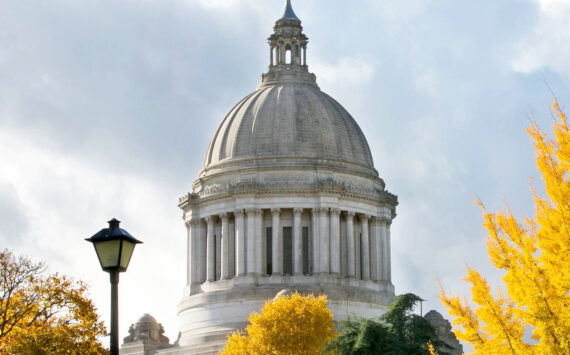By Morf Morford
Tacoma Daily Index
We are rapidly approaching the 75th anniversary of the conclusion of World War II.
V-E (Victory in Europe) Day on May 8, 1945 and V-J (Victory in Japan) Day on August 15, 1945; on August 15, 1945, news of the surrender was announced to the world. This sparked spontaneous celebrations over the final ending of World War II. On September 2, 1945, a formal surrender ceremony was held in Tokyo Bay aboard the USS Missouri.
WW II is generally considered to be our last “good” war – a war clearly defined in terms of when it began and ended and in what we were fighting for – and against.
I’ve often wondered why those of us of later generations were such a solid market for the books and movies and TV series set in a war that transpired entirely before most of us were born.
I think it is because of the “clean” lines – the exact dates of the war, and distinct battles occurred and the characters, good and evil, large and small, heroic and vile that emerged and still, 75 years later, stand as memorials to the best, and perhaps worst of humankind.
From Churchill, to Stalin to Hitler and FDR, the leaders set the tone and represented their nations on the world stage in a pivotal time that would leave none of us unscarred.
America before WW II was a very different place from America after WW II.
In the Puget Sound area for example, our “industry” like the rest of North America, was agriculture. Vashon Island was famous for its strawberries (they still have an annual strawberry festival, but few, if any working strawberry farms). The Auburn and Puyallup valleys were productive agricultural centers. I-5 did not exist. Seattle was a small town and Boeing was a small family-run company.
WW II changed all that – and gave us an unending series of TV shows and movies, from Indiana Jones to Saving Private Ryan to Schindler’s List, and hundreds more that continue to be made almost a century later.
I’ve often wondered why WW II had such a continuing pop culture and media presence while the wars that followed, in Korea, Viet-Nam, Afghanistan, and Iraq, among many others did not have anywhere near the persistent media presence.
There were a few movies with a focus on Viet-Nam, and a few on our wars in the Middle-East – but nothing like the canon of films and books (and TV series from Ken Burns’ Series (https://www.pbs.org/thewar/) to The Band of Brothers).
As I mentioned above, unlike Viet-Nam, Afghanistan, and Iraq, WW II was a war that was “declared” on a certain date and was finished on a specific date. Our war in Korea was “declared”, and technically still continues because a treaty was never signed to end it.
As the Ken Burns special on WW II emphasized, WW II was a war that involved virtually every one of us. Children collected scrap metal for the cause, ration cards were issued for basic foods and basics like gas and food shortages were common for most American families. The vast majority of American families had gardens and raised at least a portion of their own food, and those that didn’t, canned and pickled their own foods. In short, most Americans were largely self-sufficient and were willing, even eager, to contribute, or scrimp, in the service of a larger cause. Heroes were in our neighborhoods as well as our battlefields.
The wars within the lifetimes of most of us had obscure beginnings, and even more vague endings – or as in the case of Afghanistan (our longest, though still undeclared, war) no foreseeable ending in sight.
But even if, or when, that war ends, there will be little to celebrate. There will not be, and have not been, victory parades in the streets of America for our current wars.
I think one of the differences is that in WW II we and the world learned something about America – when faced with a challenge, we rise to it.
America emerged in the early 1950s, not only as essentially the only remaining industrial power, but as a clear (most of the time) moral force for the good of the world – not just for ourselves. We rebuilt Japan and Germany, and our former enemies have become, for decades since, among our strongest allies and business partners.
America was not only a force for good (as expressed by foreign aid and programs like the Peace Corps and the United Nations) but we were also, especially in contrast to post-war Europe, unfailingly optimistic.
Who else, besides America, has the sheer audacity, and resources, to combat diseases that had ravaged humanity for millennia like polio and small pox, or eliminate hunger around the world or send a man to the moon?
WW II still defines us, if not the rest of the world.
During WW II, leaders emerged, unimaginable challenges (and horrors) faced us and we came out of it as newly defined people.
Our challenges now are different of course, but our will, our possibilities and our potentials are still waiting to be unleashed. This new set of challenges will, like those before, draw out the best and the worst of us. It is up to us, and as with those decisions made by previous generations, their consequences will be with us for years, if not decades to come.






